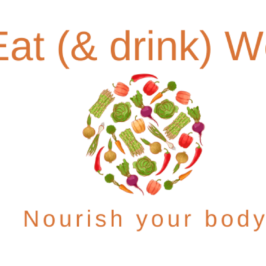Something I’ve been pondering recently as a clinical Nutritionist is how an increased obsession with Diets, Detox, “Clean Eating”, Super foods and “healthy” food trends etc. could potentially be making us sick instead of healthy…. and could increased variety of foods instead of restriction actually be the key?
Our food forms the building blocks for how our body’s function, so it makes sense that if we don’t get the nutrients we need it can cause dysfunction, and therefore health problems.
Modern diets are becoming less varied and more restrictive. From my experience this is often caused by people cutting out foods or food groups based on what they are told in social media and other sources as “healthy”. Reporting of constantly changing health and food trends by “wellness” and “nutrition” experts creates a lot of confusion with unrealistic promises made, and unfortunately with the focus on appearance instead of long-term health. The loser in all of this from what I’ve observed is that many people are not getting all of the nutrients their bodies need to function optimally. Other contributors to this restriction and lack of variety in our diets include:
- The development of modern monoculture farming systems means we have less foods available to us as farmers focus on the most popular foods with the highest yields
- In general nutrient values in food have been declining over the last 50 years, there’s now evidence that shows dramatic drops in nutrients such as magnesium, calcium, iron, copper, Vitamin C, Riboflavin and more. It has been suggested that changes in soil quality (again due to farming practices) is the main contributor
- Most people have a small repertoire of meals they prepare at home and eat
- Increased consumption of packaged and convenience foods which are generally devoid of nutrients
- Modern day lifestyle stress and other health issues can impact absorption of nutrients into our bodies
- Added to all of this is the majority of people from my experience as a nutritionist are not eating adequate amounts of fruit and vegetables on a daily basis
Most “diets” and modern “healthy” eating philosophies work on the premise that, firstly a certain way of eating will work for everyone, and secondly they require elimination of certain foods or food groups. However, it is these two points that actually can cause under-nutrition and make diets unsustainable because our bodies are starving for what they really need individually:
- There is in fact no one ideal diet that works for everyone, bio-individuality does exist (we all have an individual interaction with the nutritional environment). Although of course there are things that work for all of us i.e. whole, fresh, seasonal, organic, quality foods (along with non-nutritional factors such as lowering stress, exercising, healthy living environments and getting plenty of sleep).
- There are times some people do really need to eliminate certain foods from their diets for health reasons e.g. some people are sensitive to “night shade” vegetables (tomatoes, eggplants, peppers etc.). However, doing this for others could have an impact on their overall nutrient intake.
Added to these restrictive ways of eating there seems to have been a move away from eating whole foods (not processed or packaged), or more specifically whole meals (a meal of whole foods), to eating specific so-called “super foods” and nutrients. Some of these foods can have certain additional health benefits and supplementation is an essential part of nutritional medicine. However, I believe generally healthy eating should not be focussed on specific foods or nutrients. Whole foods and “whole meals” are greater than the sum of their parts, and a much more beneficial (and enjoyable) way to eat to get variety and nutrient dense foods into your diet. Chemical reactions between nutrients in whole foods is extremely powerful in relation to health, and food should bring us pleasure as well as be nourishing. The Mediterranean diet is a good example of this in that people have tried to work out for years what exactly makes these people so healthy – is it the high amount of vegetables and low meats? The fish and oils? The nuts? The red wine? Or could it be their lifestyle and joy they get from sharing meals?… We now know it’s the combination of all of these things that results in many of these people living such long and healthy lives.
I really believe we should be taking the concept of whole foods further to talk about the importance of “whole meals”. What I mean by this is creating delicious and nutritious meals from lots of different whole foods, that are consumed in an environment that is stress free and conducive to getting the most benefit from our foods. In relation to nutritional medicine and therapy for certain health conditions, supplementation does form an important component and at times a restrictive and focussed approach is required, however the whole food should always come first in the treatment of health problems.
The best approach for most healthy people is to consume a varied, whole meals diet most of the time in order to optimise nutrient intake. Its important to not in get caught up in eating specific “super foods”, restricted diets or eating philosophies and detoxification programmes too often.
Here are some really simple ways you can create more variety and increase your nutrient intake:
- Don’t restrict healthful foods from your diet unless your body reacts negatively to it, you really don’t like the taste (although this can change quickly due to rapid replacement of taste bud cells) or you can’t eat it for religious or ethical reasons
- Avoid any fad diets and extreme fasting that severely restrict certain foods / nutrients. This includes diet products that come in the form or packets and shakes as these are NOT whole foods and usually highly processed
- Set yourself shopping and cooking challenges
- Check you have all the colours when you do your fruit and veg shop – red, white / brown, orange / yellow, purple / blue, and of course green
- Shop at a variety of farmers markets as they will provide veggies you may not get at supermarkets
- Avoid eating / cooking ruts by challenging yourself to learn one new recipe a week or fortnight, and using a food that you’ve never eaten before
- Utilise a variety of cooking / food preparation methods (with the exception of boiling and microwaving as they will destroy some important nutrients)
- Eat in line with your cultural background if you know it and it feels right, try to understand anything you might be genetically predisposed to having a problem with and learn how certain foods might fit in with that
- Eat mostly whole foods and restrict anything from a packet
- If possible eat seasonally, locally and organic – organic food often grows slower and has deeper root systems so therefore more nutrient dense (and of course doesn’t have the chemical residues); and transportation of food and refrigeration processes can destroy certain nutrients such as Vitamin C
- Think about the environment WHERE you eat – a quite and relaxed environment where you can eat calmly and slowly is the most beneficial. Eating when you’re stressed will reduce the overall intake of nutrients into your body








Leave a Reply